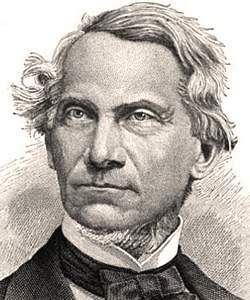Christopher Gustavus Memminger (American National Biography)
Scholarship
Memminger was a Union Democrat for most of the antebellum period. In the nullification crisis of 1830-1832, he wrote a satirical pamphlet, The Book of Nullification (1832), lampooning the nullifiers and went so far as to propose the use of military force against them. He was elected to the lower house of the South Carolina legislature in 1836 and, with the exception of 1852-1853, served continuously up to the outbreak of the Civil War. He specialized in banking and monetary issues and gained a reputation as a fiscal conservative and sound money manager through his long service as chairman of the Ways and Means Committee. When South Carolina threatened to secede over the Compromise of 1850, Memminger again assumed a conservative stance. He agreed that secession was a constitutional right of the individual states but held out for a cooperative movement that would ensure the unity and economic stability of the South.
As late as January 1860, Memminger was still opposed to separate state secession. In that month he was sent by the governor as a special commissioner to Virginia. He addressed the Virginia legislature and urged the state to join South Carolina in its call for a southern convention "to concert measures for united action" in the wake of John Brown's raid. When he sensed that his mission had failed, Memminger concluded that "we farther South will be compelled to act and drag after us these divided states." He actively promoted South Carolina's secession in December 1860 and was selected to the provisional Confederate Congress that met in Montgomery, Alabama, in February 1861.
As late as January 1860, Memminger was still opposed to separate state secession. In that month he was sent by the governor as a special commissioner to Virginia. He addressed the Virginia legislature and urged the state to join South Carolina in its call for a southern convention "to concert measures for united action" in the wake of John Brown's raid. When he sensed that his mission had failed, Memminger concluded that "we farther South will be compelled to act and drag after us these divided states." He actively promoted South Carolina's secession in December 1860 and was selected to the provisional Confederate Congress that met in Montgomery, Alabama, in February 1861.
William L. Barney, "Memminger, Christopher Gustavus," American National Biography Online, February 2000, http://www.anb.org/articles/04/04-00702.html.






